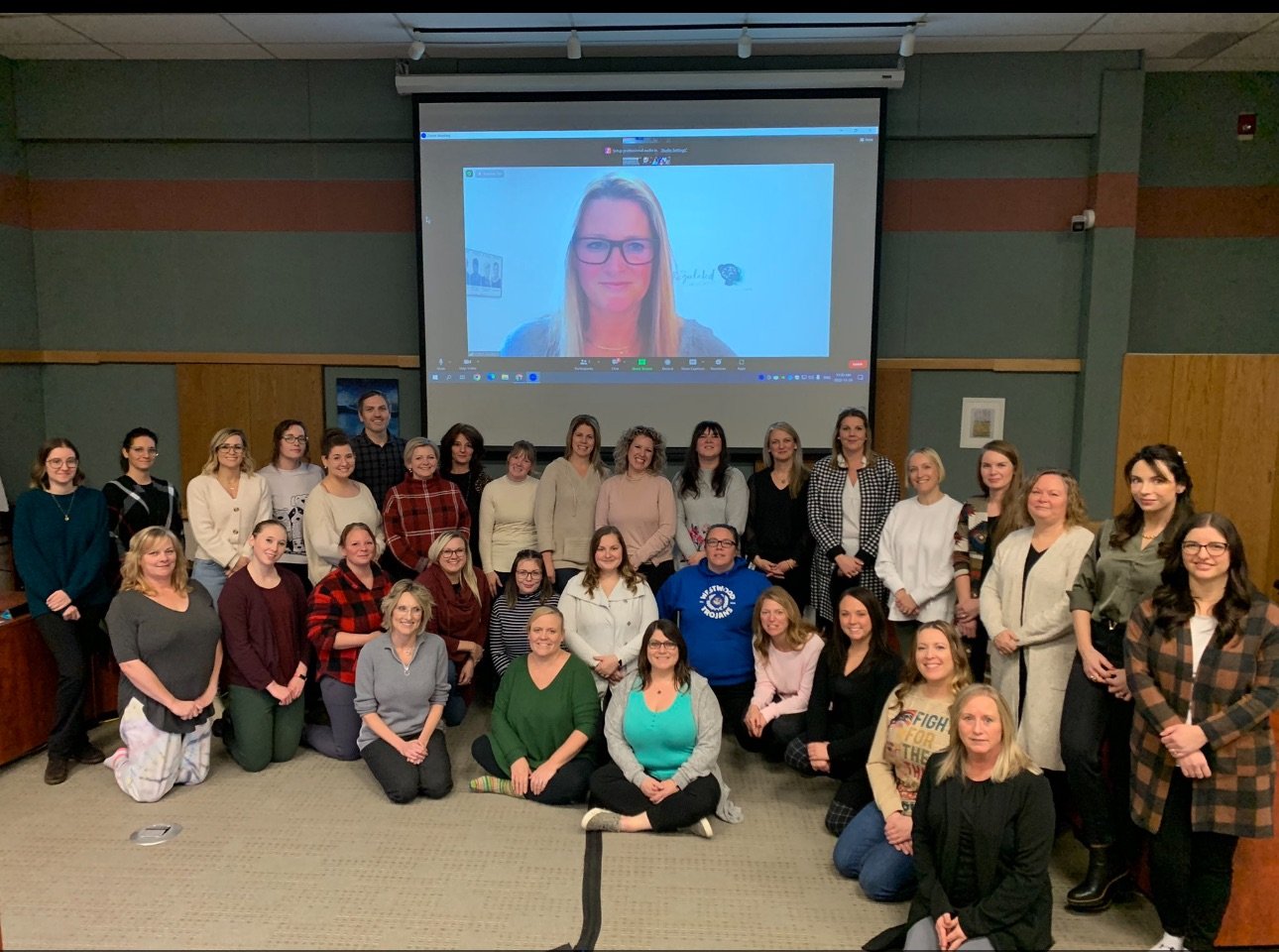In the heart of Northern Alberta, the Fort McMurray Public School Division (FMPSD) has been pioneering a shift in educational practice, moving towards a system that prioritizes the emotional well-being of both students and teachers. At the forefront of this change is The Regulated Classroom©, funded by the Wood Buffalo Community Foundation (WBCF).
Mellanie Fraser serves as the Mental Health Supervisor for the FMPSD and provides clinical supervision for 21 school-based counsellors. Her role is unique to Fort McMurray and was born out of necessity.
In addition to her supervisory responsibilities, she collaborates with all 16 FMPSD schools, providing families with support through a mental health lens, advocating on their behalf and coordinating referrals to appropriate community resources as needed.
“There is a pressing need for the right supports, as schools have increasingly become central hubs for addressing a broad range of student needs—from mental health services to connecting families with vital community resources,” says Fraser. “Schools are consistently involved in these situations, which makes sense given their deep connection to and understanding of the communities they serve.”
Funded by a WBCF Community Grant, The Regulated Classroom© comes from a place of science to support educators to manage and regulate their own nervous system to better support students in their learning.
“It was developed by Emily Read Daniels and is grounded in the understanding that students cannot be regulated unless the adults around them are also regulated,” says Fraser. “It emphasizes teacher self-regulation as the foundation for creating a safe, attuned, and effective learning environment.”
WBCF’s funding brought Read Daniels to Fort McMurray to train teachers, provide resource books, practical tools, and "microdoses" of regulation that could be easily integrated into the school day to support the classroom.
“The impact has been profound,” says Fraser. “Teachers have become more self-aware of their own stress responses and how these responses affect their students. They understand, with the backing of neuroscience, that a dysregulated teacher cannot effectively teach, and students cannot effectively learn.”
It’s led to a decrease in disruptive behaviors, a reduction in student anxiety, and an increase in connectedness within the classroom.
“Teachers who have embraced The Regulated Classroom© feel more empowered and equipped to create a safe and supportive learning environment, establishing a positive tone from the start of the school year,” says Fraser.
The success of The Regulated Classroom© has had a ripple effect throughout FMPSD and the wider community.
“One school in FMPSD is on their way to becoming a Regulated School. They have been given a great opportunity to work with Emily, to train staff and support them throughout the school year," says Fraser.
The project has also spurred collaborations, including the Canadian Mental Health Association and the Autism Society, as well as the Fort McMurray Catholic School Division, leading to initiatives like parent workshops on understanding and supporting regulation.
“One of the biggest things I have learned in mental health is that nothing can happen unless there is connectedness. We need to feel like we have a common goal, to help our community thrive and grow,” says Fraser.
“By equipping teachers and students with the tools to regulate their emotions and build strong relationships, the project is breaking negative cycles and empowering the next generation to make better decisions.”
Learn more about WBCF Community Grants to get your application ready for the next funding cycle, which opens later this summer.
Watch the podcast: Your Mental Health Matters-Guest Emily Reed Daniels Creator of The Regulated Classroom





